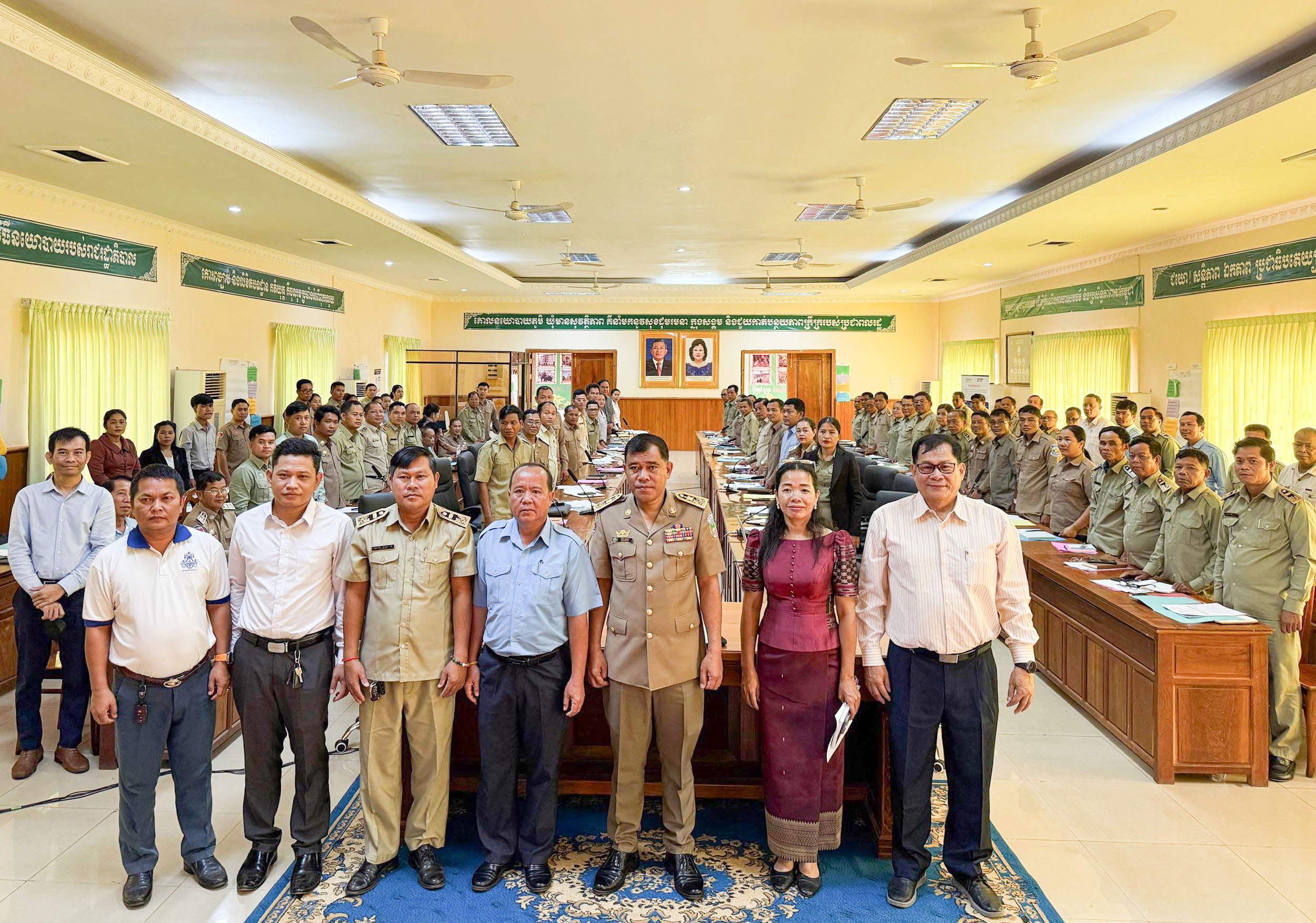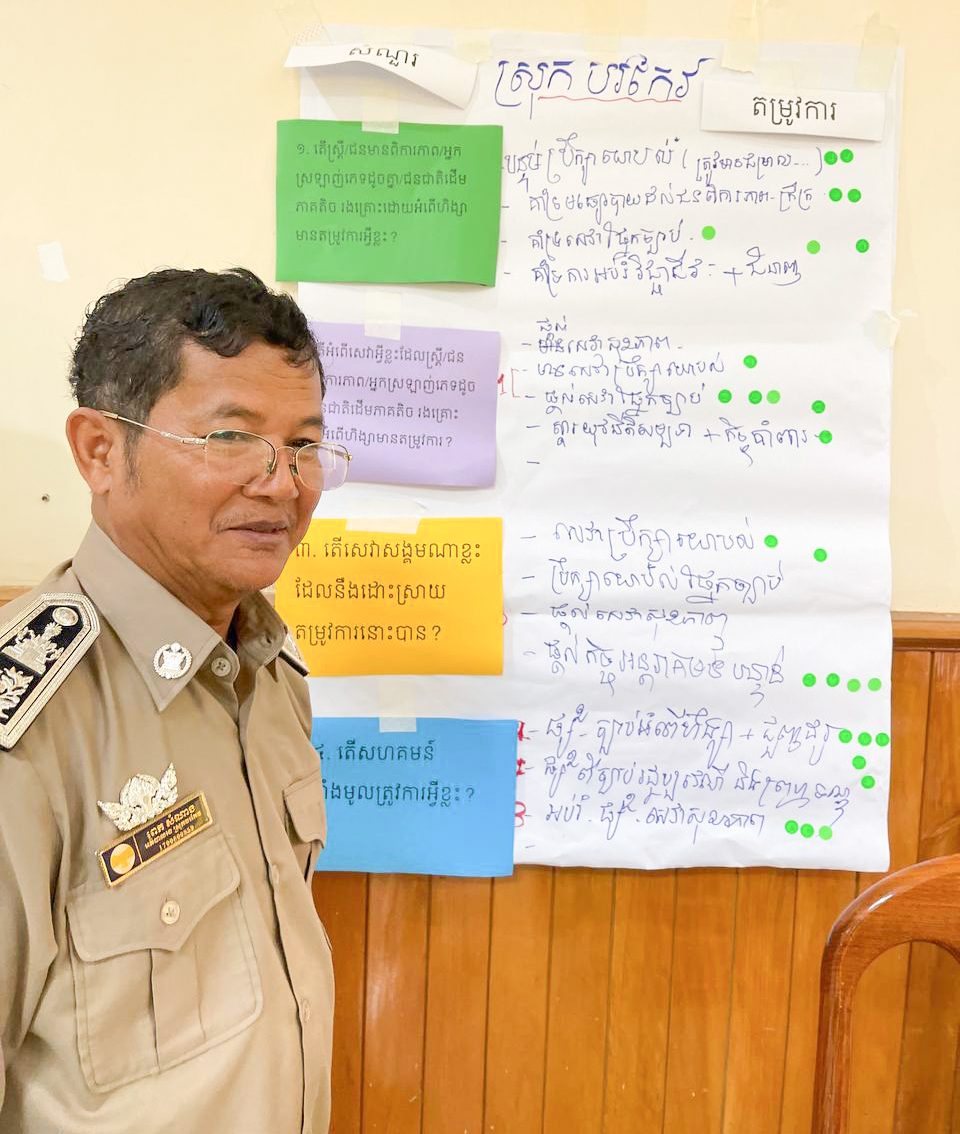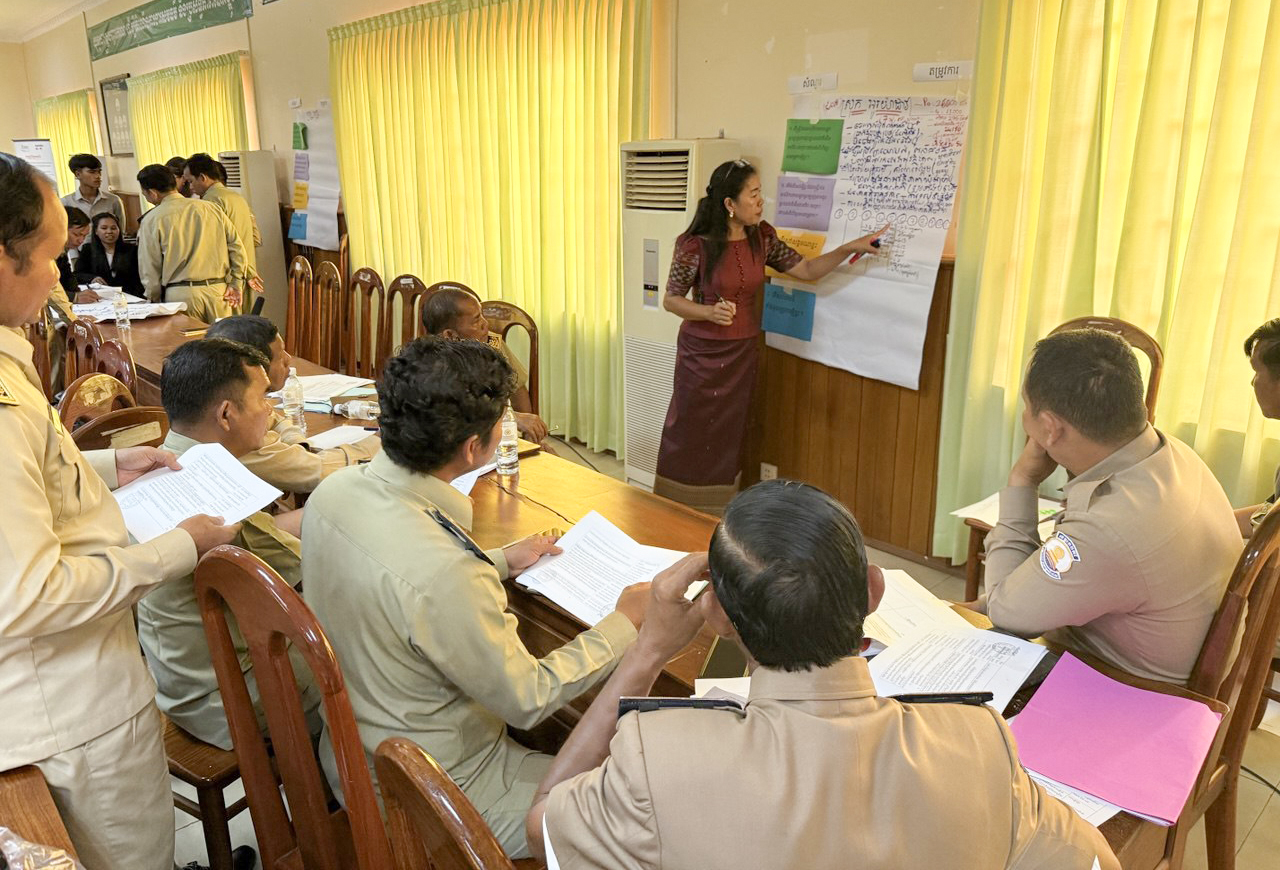Recently, the Australia-Cambodia Cooperation for Equitable Sustainable Services – Phase 2 (ACCESS 2) supported the Provincial Coordination Committees (PCCs) in conducting a follow-up meeting in Kampong Cham and Ratanakiri Province. The meeting aimed to provide hands-on coaching and support to district and commune officials on mainstreaming Gender Equality, Disability, and Social Inclusion (GEDSI) into their subnational investment programs with increased of subnational funding allocation to social service budget.
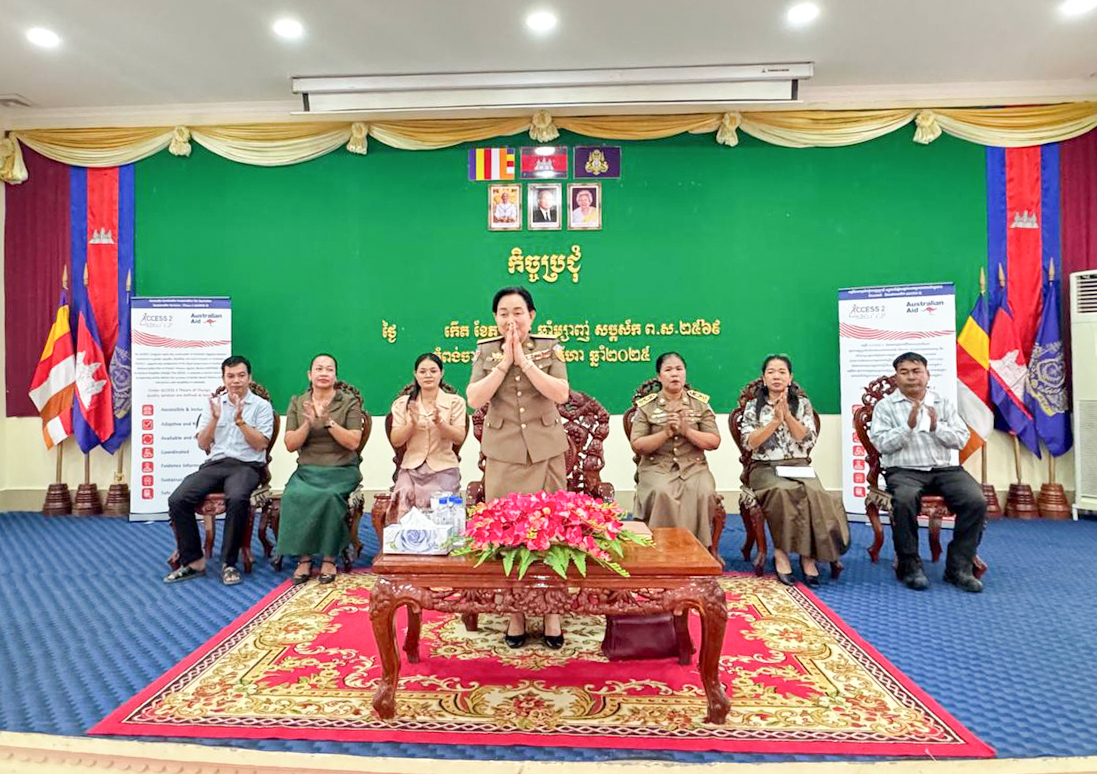 Meeting Objectives: The primary objectives of the meeting were to:
Meeting Objectives: The primary objectives of the meeting were to:
- Assess Progress: Evaluate how subnational authorities have progressed in integrating GEDSI principles into their Commune/Sangkat Investment Programs (CIPs) and District/Municipality Investment Programs (DIPs) since the initial workshop in May 2025.
- Provide Hands-on Coaching: Offer direct mentorship on how to practically apply GEDSI principles, focusing specifically on allocating social service budgets to support vulnerable groups.
- Facilitate Peer Learning: Create a platform for authorities to present their CIPs and DIPs, share experiences, and discuss both challenges and successful strategies for GEDSI mainstreaming.
- Address Implementation Barriers: Identify and collaboratively address common challenges that prevent GEDSI from being effectively mainstreamed into subnational planning and budgeting processes.
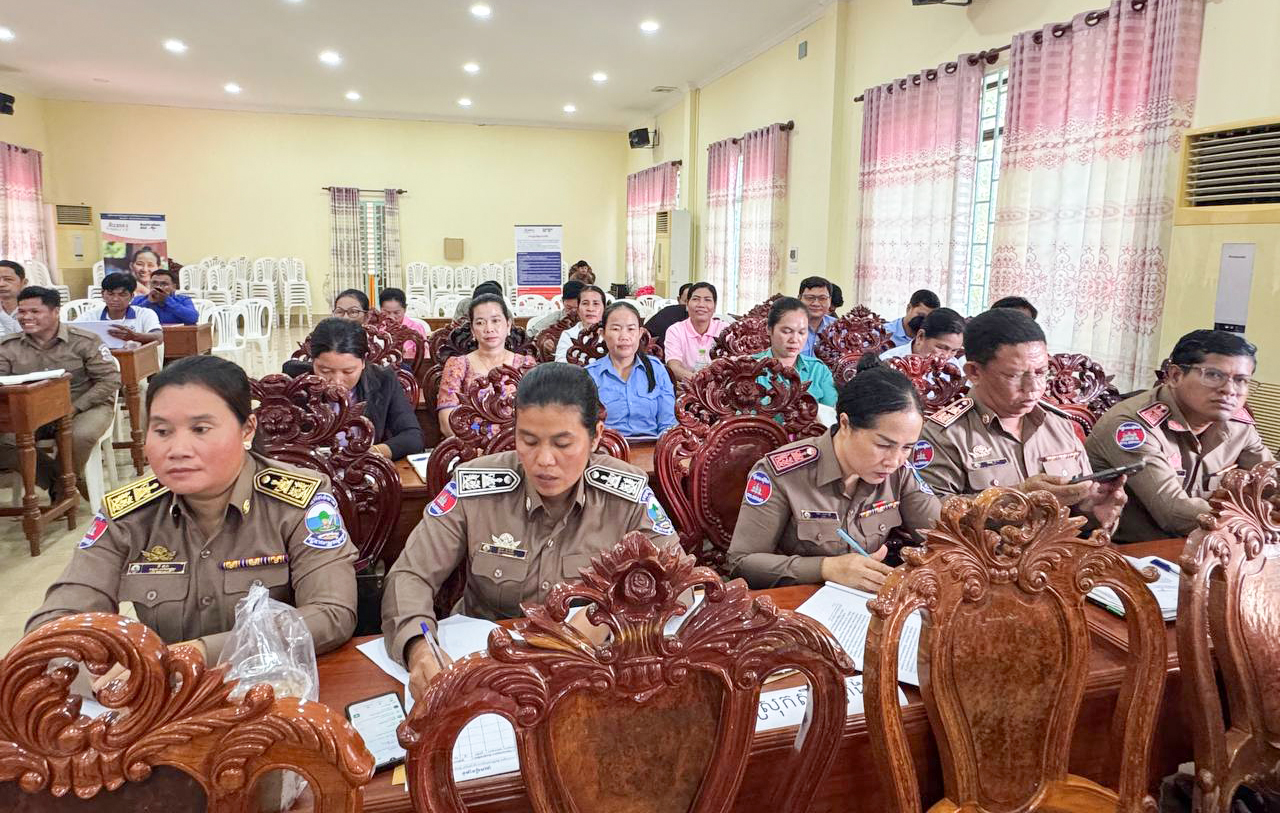 Methodology and Outcomes
Methodology and Outcomes
The meetings in both provinces brought together sub-national authorities from district and commune levels, provincial departments, Strategic Implementing Partners (SIPs) and Organisation of Persons with Disabilities (OPDs) representatives with the total 211 participants (86 women) including 51 indigenous and 8 persons with disabilities.
The meeting employed a highly interactive methodology that included a brief recap of the initial GEDSI workshop, presentations from the provincial planning and budgeting Unit on the Circular number 007 “a breakdown budget code/items for social service”, and presentations of selected on district and commune authorities on the draft of DIP and CIP and how GEDSI principles were integrated in them.
Another key part of the meeting involved reviewing and updating DIPs and CIPs to align with social service budget line items.
The meeting obtained significant outcomes, with participants demonstrating an increased capacity to apply GEDSI principles by presenting how they have allocated social service budgets.
They were also able to articulate specific challenges and propose practical solutions based on the feedback and coaching received. A significant result was the refinement of current CIPs and DIPs to better reflect GEDSI principles, ensuring budgets are allocated to support the needs of women, people with disabilities, and other marginalised groups.
Perspective from the provincial leaders
H.E. Pang Dany, Deputy Provincial Governor of Kampong Cham Province, recommended: “Please take the knowledge gained from this meeting and share it with GBV working groups, promote disability rights, and especially mainstream it into your action plans and budgets.”
“Mainstreaming GEDSI principles into sub-national investment programs for inclusive budgets is not only a technical task, but it is also a sub-national commitment to build a more inclusive society with leaving no one behind”, said the HE Van Sophea, Deputy Provincial Governor of Ratanakiri Province.
Good practices and lesson learned in Kampong Cham and Ratanakiri
- Hands-on Coaching: The meeting demonstrated that providing direct, hands-on support and coaching is a quick and effective way to help subnational authorities apply GEDSI principles. This practical approach, as opposed to purely theoretical workshops, allowed participants to immediately review and update their CIPs and DIPs to align with social service budget items and the need of adequate budget allocation for vulnerable people as well as for the service providers.
- Peer Learning: Facilitating a platform for participants to present their work, discuss challenges, and share successful strategies proved to be a valuable lesson. This peer-to-peer exchange fostered a collaborative learning environment and helped authorities learn from each other’s experiences.
- Targeted Feedback: The use of facilitator-led feedback sessions after presentations ensured that officials received specific and constructive guidance. This targeted support helped them to refine their investment programs to better reflect GEDSI principles and ensure budgets are allocated to support the needs of women, people with disabilities, and other marginalised groups.
Ways forward
- The Meeting agreed that with support the support from Strategic Implementing Partners and PCC, the DIP/CIP will be review and updated for presenting at the District Integration Workshop (DIW).
- The DIW schedules will be distributed to all concerned stakeholders and encourage them to attend the DIW to ensure their priorities are aligned with subnational priorities and smooth integration into the subnational investment programs.
